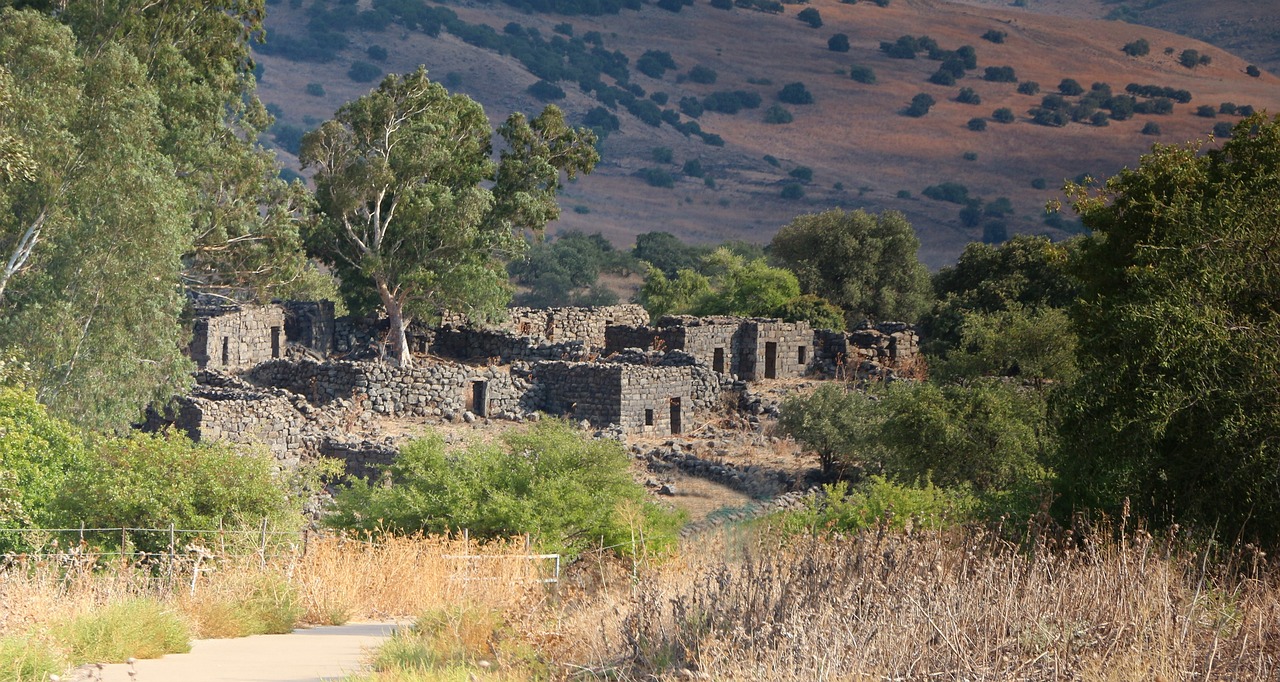Since its official announcement in 2017, reconstruction has been used as a political tool of the regime to cement Bashar al-Assad’s power. But what could an alternative rehabilitation plan look like and what are basic requirements? To achieve sustainable peace, Syria needs to reform its political structure and guarantee participation on the local level.
A Comment by Pauline Raabe and Pauline Ertel
The conflict in Syria is often reduced to a proxy war in a region of turmoil. However, the conflict itself emerged out of a broad social movement demanding equality, civil rights, the end of corruption and political reforms of the authoritarian government. Hence, to achieve sustainable peace, reconstruction efforts need to address these demands. The accumulated grievances of the Syrian society reach far and target an array of problems, so where to start?
In this article, we argue that two interlinked aspects are central to Syrian reconstruction and peace building plans: First, a decentralised political system enshrined in a new constitution and second, an urban rehabilitation plan which includes those that have been affected by war crimes, such as refugees and impoverished civilians. It hints at potential ideas for reconstruction in a post-Assad setting.
Clientelism and lack of civil rights
The Syrian revolution was and continues to be the expression of a decades long aversion towards the Baathist regime and of Assad’s party and politics. Central to the popular discontent is the flawed political logic of tyranny: the few ruling over the many. In Syria, years of the regime’s dictatorial and arbitrary politics of favoritism and the formation of regional and local elites have caused ethnic cleavages among the population.
In this way, a few businessmen and clientelistic networks witnessed an increasing concentration of unprecedented wealth and power under the regime, based on legitimacy from the center rather than the population at large. These exacerbated socio-economic grievances caused huge inequalities and wealth discrepancies.
Usually, a constitution, as a contract between government and population, prevents such arbitrary use of power as it poses checks and balances on the government. It defines how a government is organised, how elections are organised and it entrenches the rights and freedoms of the population.
For post-war Syria, it seems inevitable that this contract needs to be rewritten. New rules in the form of a new constitution are however not enough. In order to reform the political structure, a comprehensive (institutional) reconstruction plan needs to be implemented that guarantees participatory mechanisms within a more transparent decision-making processes and specifically includes the demands of the deprived, evicted and displaced.
The uprising’s roots
In contrast to other states in the region that witnessed uprisings in their capital cities in recent years, the first people that rose against the regime in Syria were inhabitants of provincial cities. They have been facing precarious living conditions and limited access to water and electricity due to Assad’s neoliberal reforms since the start of his rule in July 2000 which caused the intensification of the housing crisis and the expansion of informal settlements in suburbs.
In an attempt to appease the population, a constitutional referendum was held in February 2012 which replaced the constitution that had been in place since 1973. Promising a multi-party parliament and political reforms, the new constitution rather tightened Assad’s grip on power. Furthermore, the constitution never posed an impediment to the Syrian president. Due to his poor human rights record, the opposition argues that the constitution, prohibiting torture and enshrining freedom of speech, has never been respected.
Sustainable peace through decentralisation and local participation
When there is excessive use of force, it seems necessary to let those who ordered the violence atone for it. It is important to mention that since 2011, the regime forces, international alliances and armed rebel groups have also contributed to the violence in Syria. The violence by the regime is however the focus here.
In order to prevent further violence, the power structure of the ruling regime needs to be dismantled. The German constitution of 1949, for example, established a system of laws and articles to prevent further crimes and comprehensively reformed the governmental system.
A complete lustration of the ruling elite and subsequent legal prosecution in Syria is however hard to imagine: Assad has re-conquered most of the land and regime functionaries are in control almost nation-wide. One should however also question the political effectiveness of lustration efforts. A power vacuum in Syria might be misused by foreign interest-, rebel groups or other stakeholders as it was the case in Iraq after the US intervention, which would risk re-escalation and further humanitarian disaster.
An alternative would be to profoundly restructure the political landscape by means of decentralisation. A decentralised state grants some degree of local self-determination and legislative authority to regional authorities. In Syria, the current parliament is constituted of one house, the People’s Assembly.
A decentralised Syrian state would entail the creation of a two-house parliamentary system featuring region-based representation which shares legislative authority with the People’s Assembly. This would also increase political respect for Syria’s sectarian pluralism.
As a result, a decentralised system with locally elected authorities might facilitate a reconstruction plan which suits the needs of the local population. Based on the right-to-the-city approach that demands shaping power to those who eventually inhabit the city and responds to the claims of the protesters, local residents would then no longer be segregated along socio-economic lines.
Instead, they would participate actively in the decision-making process how to prioritise reconstruction efforts. Data collected by initiatives like the Aleppo Project or Adopt a Revolution provide meaningful starting points.
Towards justice and equality in Syria
A decentralised Syrian state would also bring a more just and egalitarian system of resource distribution which has previously been biased and regionally disproportionate. The Northeast, a region rich in natural resources but with the country’s lowest development indexes, received disproportionately little from the center. All local administrators and important regional decision-makers were appointed by Damascus, rather than elected by the local population.
Furthermore, ethnic minorities were subject to unequal treatment and unable to follow cultural self determination. Especially the Kurdish population, Syria’s largest non-Arab minority, is deprived of many basic rights, including citizenship. A decentralised structure might bring more regional political legitimacy and respect for the basic rights of every Syrian citizen.
In contrast, the current legislation promoted by the regime authorises eviction and expropriation of the people in order to implement luxury housing and gated communities like Marota City in Damascus. A post-war setting should therefore consider international compensation schemes such as the UN Pinheiro Principles combined with a comprehensive prosecution of the involved businessmen.
These peacebuilding processes must be informed by awareness towards socio-economic contexts and historical prerequisites. The financing of Assad’s ethnonationalist visions that punish political opponents and civilians alike makes these financing parties accomplices of the regime’s growing list of human rights abuses. The masterminds of eviction and dispossession need to be convicted before justice and the right to return can be realised.
To sum up, reconstruction efforts must include the civil right to participate in the decision-making process which in turn needs to be legally and constitutionally enshrined. Any meaningful reconstruction needs to be backed by the population. Otherwise, the roots of the uprisings continue being ignored and any prospect of peace is highly unstable. The Syrian political landscape is fragmented with multi-layered issues but only a combined effort of bottom-up approaches with wide-ranging reforms of the political system can lead to improvement.
The Polis Blog serves as a platform at the disposal of Polis180’s & OpenTTN’s members. Published comments express solely the authors’ opinions and shall not be confounded with the opinions of the editors or of Polis180.
Image via pixabay

Pauline ist seit Mai 2020 bei Polis aktiv, und studierte Liberal Arts in Maastricht und Washington D.C. Ihr Schwerpunkt war Internationale Beziehungen und Politischer Philosophie mit einem regionalen Fokus auf den Mittleren Osten. Momentan engagiert sie sich im Projekt ‘One Constitution for all Syrians – Facilitating the Peace Process’ des Europäischen Zentrums für Kurdische Studien (EZKS). Dieses Semester wird sie in London ihren Master in Politischer Theorie beginnen. Projekte und Praktika führten sie u.A. in den Iran und nach Palästina.

Pauline engagiert sich seit Frühjahr 2020 bei Polis, und davor bei Agora. Sie forscht in ihrer Masterarbeit zum Wiederaufbau in Syrien und studiert Middle East Politics an der SOAS, University of London. Während des Bachelorstudiums in Politikwissenschaft und Islamwissenschaft an der Universität Münster absolvierte sie Praktika, Sprachkurse und Forschungsaufenthalte in Marokko, Jordanien sowie im Libanon.
